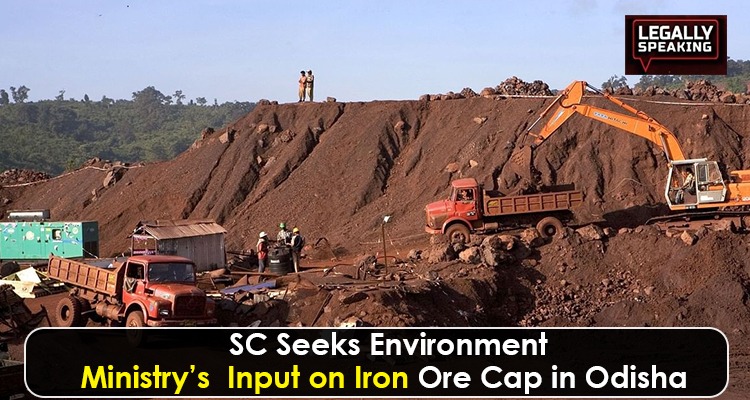
The Supreme Court sought a view from the Ministry of Environment, Forest and Climate Change (MoEFCC) regarding the possibility of imposing a cap on iron ore mining in Odisha, considering sustainable development and intergenerational equity.
A bench comprising Chief Justice of India DY Chandrachud, Justice JB Pardiwla, and Justice Manoj Misra directed the MoEFCC to provide insights into the environmental impact of iron ore mining and the concept of intergenerational equity.
The apex court sought the opinion of the Environment Ministry following a review of the affidavit submitted by the Ministry of Mines in response to a previous directive. The Ministry of Mines was asked whether there could be a limitation on mining activities in Odisha, considering the finite iron ore reserves in the region.
Advocate Pranav Sachdeva, representing the NGO Common Cause, informed the bench that at the current mining pace, iron ore reserves are expected to deplete within 25 years, necessitating a cap. In response, the Supreme Court instructed the MoEFCC to present its viewpoint.
The court also directed the Odisha government to submit a fresh affidavit within four weeks, detailing the recoveries of dues from mining firms found guilty of violating norms in the state, as per the August order. The state was specifically asked to provide information on the attached properties of mining firms to recover the outstanding dues.
Senior advocate Rakesh Dwivedi, representing the Odisha government, reported that a substantial amount in fines had been recovered from defaulting mining firms. However, Rs 2,622 crores were still pending collection. The apex court was addressing a PIL filed in 2014 against illegal mining, proposing that defaulting firms or their promoters be barred from participating in future auctions involving the state’s mineral resources, with dues recovered by attaching their properties.




